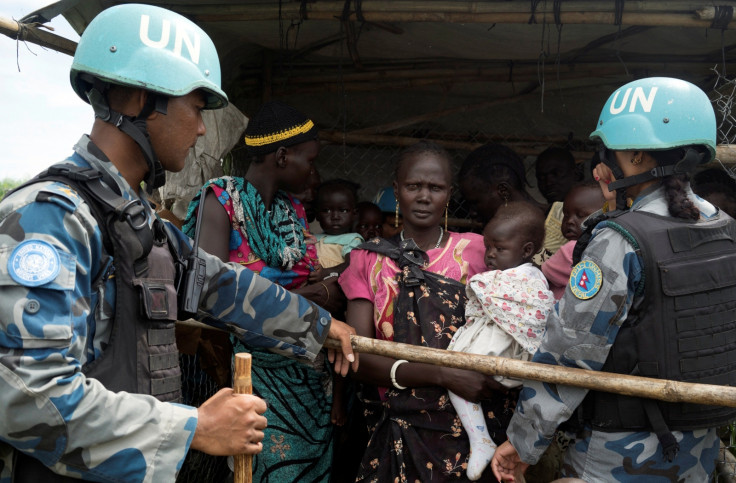South Sudan's new vice president urges Riek Machar to denounce violence
Riek Machar replaced by Taban Deng Gai when the former fled Juba following July violence.
South Sudan's new vice-president has urged his predecessor Riek Machar to help achieve peace in the country, where a civil war erupted in 2013 has killed thousands. Taban Deng Gai was an ally of Machar until the latter fled the capital Juba following resurgence of violence in July.
"Let (Machar) denounce violence, let him work for peace and let him wait for the elections in 2018," Deng said during an official visit to Kenya, according to news agency AFP. "It cannot be violence in 1991, violence in 1998, violence 2013 and violence again in 2016. I think (Machar) should have learned from those mistakes," he continued.
In July, Machar went into hiding following deadly fighting that left at least 300 people dead in Juba.
He accused government forces of opening fire on his troops, and said he would return to the capital once a third party force was deployed to ensure his and his officials' safety.
Gai, former minister of mining and chief negotiator of the Sudan People's Liberation Movement-in-Opposition ( SPLM-IO), replaced Machar in a move seen by some as an obstacle to a peace deal signed in August 2015.
"Wherever (Machar) is let him ask for a peaceful passage. If he decides to stay in the country let him stay in peace in Juba, or if he thinks he cannot stay in Juba let him come to Kenya or to any of the African countries and let him organise his political party and let him wait for the election in 2018," Deng continued.
"This peace is a beautiful peace to the people of South Sudan we are not going to allow it to collapse."

South Sudan's conflict erupted in 2013 when President Salva Kiir, of the Dinka ethnic group, fired his deputy Machar, from the Nuer group, and his cabinet.
South Sudan conflict explained
Ethnic-related violence then spread, with militia groups carrying out attacks in villages and areas known to be inhabited by either the Dinka or Nuer tribes.
More than 10,000 people have been killed amid allegations of crimes against humanity committed by both sides, including rape, torture and use of child soldiers. At least two million people have also been displaced.
Machar's return to South Sudan – he had fled when the conflict started – and his reinstatement as vice president in April had restored hopes for the implementation of a peace process signed in August 2015. However, tensions have been running high since his return.
The South Sudanese government has been urged to accept more peacekeepers in the country, in a plan backed by the AU. Te government iniiatlly opposed the plan, with the South Sudanese envoy to the UK telling IBTimes UK in an exclusive interview the country does not want "to be meddled with by foreign troops".
Earlier in August, Kiir said he was considering the possibility of allowing a 4,000-strong UN contingent to be deployed to the country.
August 2015 peace deal: The key points
- Both parties commit to immediate cessation of violence
- Machar to be reinstated as vice president
- Foreign troops to be withdrawn
- Military personnel in Juba to be replaced by police and guards
- Creation of transitional government that will stay in power for 30 months
- Presidential elections to be held 30 days before end of transitional government mandate
- Probe into abuses committed during conflict (for the full document, click here)
© Copyright IBTimes 2025. All rights reserved.





















